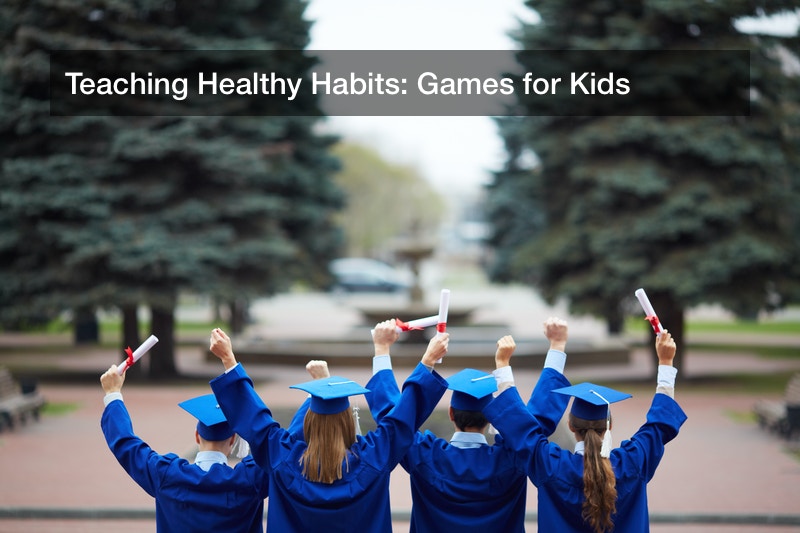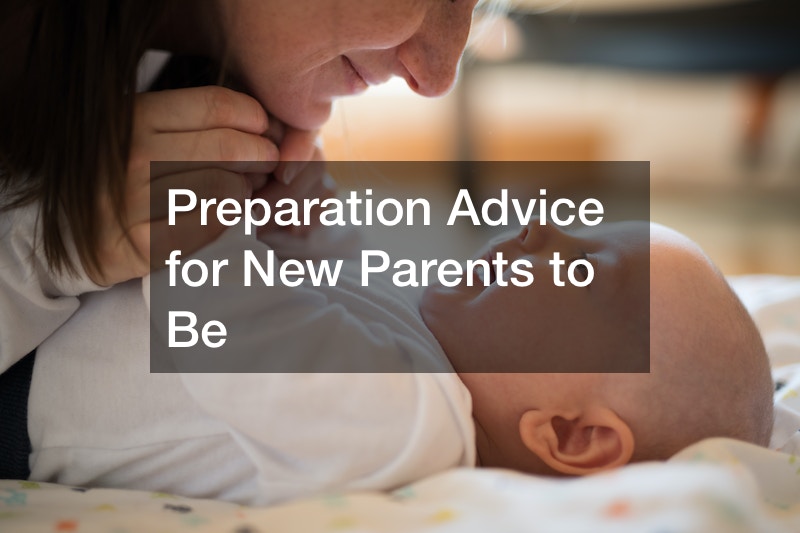
Did you know that, in the last year alone, 74% of people have claimed to feel so stressed that they had been overwhelmed? That’s not a good statistic, especially when you consider that stress is a major contributor to poor health, including chronic diseases, around the world. And if you’re responsible for caring for young children, not only do you have to cope with your own stress, but you also have to deal with the responsibility of preparing them to enter the adult world of stressors and responsibilities of their own. Between making sure everyone has their flu shots and keeping up with sports games and classes, raising children is a serious challenge.
If you’re a guardian of small children or you work with children on a regular basis, you know how important it is for them to develop healthy habits while they’re young. Whether they’re developing emotional intelligence and social skills to help offset stress in the future, or they’re just memorizing the five food groups in toddler care, developing healthy habits is more important now than ever before. Fortunately, healthy habits games for kids can make learning these skills easier.
No matter whether you’re a parent or someone who works in daycares or preschools, keep reading to learn about some of the best healthy habits games for kids, as well as other activities to help children develop healthy habits.

Healthy Habits Games for Kids: Hand-Washing
This year more than ever, we are realizing the critical importance of careful, frequent hand-washing for overall good health. With their ever-decreasing attention spans, children aren’t always the greatest at washing their hands well. But they are great at getting their hands dirty, whether they’re running around on the playground or on all fours on the nursery floor covering. To help with that, give some of the following tips and activities a try. They might not be healthy habits games for kids per se, but they should put some more fun into this ever-important area of health!
Use Songs and Videos to Encourage Good Hand-Washing Technique
For toddlers and young children, few things are memorable for teaching good life skills than fun songs. Fortunately, there are dozens of great songs on the internet that you can help your kids learn and rehearse when it’s time to wash their hands. “The Hand Washing Song” by the Wiggles and the “Learn to Wash Your Hands Song” by Jack Hartmann are just two of countless examples.
In addition to songs that you can sing, you can find several engaging, fun-to-watch videos on YouTube that illustrate the good hand-washing techniques, as well as the importance of washing your hands. Children are sometimes more likely to remember things when they’re presented to them in a visual, colorful way, and videos are perfect for that.

Use Posters to Demonstrate and Remind Kids About Hand-Washing
Ultimately you want your children to remember to wash their hands properly on their own, whenever and wherever they need to. But while they’re still in the habit-forming stage, big, colorful posters are the best way to drive home the importance of always washing your hands correctly.
Not only do hand-washing posters visually demonstrate the correct hand-washing techniques, but they also serve as a handy reminder to wash your hands often. You can find large, full-color posters for sale online, or you can find smaller, simpler posters online that you can print using your work or home inkjet printer.
Make Homemade Soap Together to Emphasize the Importance of Hand-Washing
From washing up before meals to practicing good pet safety, hand-washing is a habit you should practice several times each day. But why use plain, boring old bars of soap when you could make your own?
Make hand-washing more fun by making homemade soap with your kids. There are countless soap-making kits you can find in stores or online, and it’s a great way to bring more color and charm to the bathroom sink. Get some glitter and bright colors involved, and your children will be clamoring to wash their hands more often.

Healthy Habits Games for Kids: Healthy Eating
Diet is possibly the most important aspect of health to learn, and it’s also one of the most obvious. Get the kids off of their floor mats and excited about healthy eating with these healthy habits games for kids, designed to help them develop an appreciation for fruits and veggies.
The Veggie Guessing Bag Game
The first activity on our list of healthy habits games for kids, the veggie guessing bag game increases a child’s recognition and awareness of various vegetables.
Using a pillowcase or other non-transparent sack, place several vegetables inside. Plastic toy veggies will do just fine, although using real ones can definitely make the experience more engaging since real veggies are rarely seen outside the kitchen.
With your bag of veggies ready, invite one child at a time to feel inside the bag and grab a vegetable, then guess what vegetable it is before taking their hand out of the bag. Last they’ll take the vegetable out of the bag and see if they guessed right or not.
A fun variation on this game involves having a few children blindfolded, while another child places vegetables in their hands, one at a time. Then invite the blindfolded children to guess what vegetables they’re holding, whether by feeling, smelling, or even tasting it.
The Odd One Out Game
The odd one out game is a great way to help kids learn to distinguish between the five major food groups: vegetables, fruits, grain-based foods, meat, and dairy products.
The way you play this game is by saying a series of four words in which three of the words are all in the same category, and one of the words is from a different food group. For example, spinach, broccoli, milk, and cauliflower. Then you challenge the children to call out the word that doesn’t belong in the same group with the others: in this case, milk.
A simpler version of this game involves simply using a non-food item as the odd word, such as a word for an animal or place. This won’t teach the different food groups as effectively, but it can get kids warmed up to the game and help them become familiar with healthy foods in general nonetheless.
Food Guessing Game
Another way to promote familiarity with various healthy foods is to play a guessing game, where you describe certain attributes of a certain food and challenge your children to figure out which food you have in mind. You can start with a sentence like, “I’m thinking of a food that begins with the letter B,” and continues to describe that food’s color, texture, appearance, and even taste.
Besides helping kids familiarize themselves with different healthy foods and their qualities, this kind of game promotes better thinking and language skills.
Make a Vegetable Person
While not a game per se, another fun and engaging activity involves putting vegetables together to create a “vegetable person.” You might do this by using baby carrots for arms, a tomato for a body, and a cucumber slice for a head, fastening them all together using toothpicks.
Alternatively, you can use photos of vegetables that have been cut out and then piece them together by simply laying them out on the table. However, if you are using real vegetables, this comes with the added bonus of being able to let your kids eat their “vegetable person” for lunch or snack afterward. Just make sure everyone’s hands and work areas are clean before you begin.
Go on Food-Related Field Trips
When it comes to educational activities, nothing comes close to the direct personal experience of a field trip. Farmers and other professionals are often eager to allow well-behaved visits from classes and groups of children. You can find a farm, food market, butcher, or bakery that welcomes tours and show your children a little of what goes into producing healthy food.
When you plan a field trip, it’s a good idea to figure out what your key learning points will be ahead of time. Having an objective in mind will help keep things on track, which is always important when dealing with groups of kids. Think about what you would like the children to gain from the experience, and plan your talking points and activities around that.
On that note, remember to follow your excursion with activities like group discussion, picture drawing, or food tasting. This will help cement the experience and what they’re learning into their minds.

Healthy Habits Games for Kids: Social Skills and Emotional Health
When it comes to overall health and wellness, few things are more critical — and more overlooked — than how children relate to and communicate with one another. This is especially important for children who’ve been through an adoption service, who can all too easily feel like they don’t belong anywhere. Considering the significant role social stress and self-esteem play in lifelong health, use these healthy habits games for kids and other activities to teach good social conduct.
Turn-Taking Games
For babies and young toddlers, group activities involving taking turns performing a simple task can be stimulating and foster good social skills. Taking turns pressing buttons on a toy, rolling a ball back and forth, or simply passing a toy around in a circle helps small children get over the resistance they might feel towards interacting with one another, helping them form bonds with others. It can also help teach sharing and even teamwork.
The Name Game
For slightly older children, the name game helps toddlers learn the importance of getting someone’s attention before you speak to them. It will also help a group memorize each others’ names and learn to associate names with faces.
The game involves sitting children down in a circle, and having them roll a ball back in forth while they say the name of the person they’re passing the ball to. The kids can pass the ball around at random to whomever they like, but you might want to play along to make sure no one gets left out, which can happen when one of the children is new to the group. You could also start the game by having everyone pass the ball in a circle so that everyone’s name gets said at least once before the full game begins.
“Simon Says” and “Red Light, Green Light”
In order to get along well with others, it’s important for children to learn focus, attention skills, and the ability to restrain impulses when necessary. In preschool, traditional games like “Simon Says” and “Red Light, Green Light” help train children to follow instructions and monitor their own behavior. These are invaluable skills as children grow up and take on more responsibilities.
In “Red Light, Green Light,” one person is chosen to be “it” (or the “traffic light”), and they stand a good distance away from the other children with their back turned. The other kids stand in a line behind them until they call, “green light,” at which point they all begin walking forward. Whenever the person who’s “it” decides to, they will turn around and say “red light,” at which point the other players will stop walking. When the other children reach the person who’s “it,” they’ll be at the finish line, and the game will be over.
In “Simon Says,” one player is designated “Simon,” and the others play along by following that person’s simple commands when they begin with the phrase “Simon says.” If the child playing “Simon” tells the other players, “Simon says jump,” the other players must jump. But if “Simon” tells them, “touch your nose,” but doesn’t begin the command with, “Simon says,” those who slip up and touch their nose are “out” until the end of the game.
Simple Make-Believe Games
Playing make-believe doesn’t have to follow any specific structure like the other games on this list, but it’s remarkably useful for teaching self-control and emotional intelligence. In order to get along well with others, children need to be able to calm themselves down when they get upset by something. “Keeping your cool” is a critical social skill, but it’s one that even adults can struggle with.
Engaging in dramatic, make-believe scenarios with others is a surprisingly promising way to hone these social skills. Basically, children will adopt different roles within a make-believe setting, such as pretending to be a family of animals or dressing up as professionals in different careers. Engaging in dramatic play like this gives children the opportunity to simulate and “experiment” with different emotions and situations in a way that’s completely non-threatening. This will help them have context for similar situations they may find themselves in real life.
It doesn’t matter if you’ve been a parent for years or if you just obtained child custody for the first time: teaching children the necessary skills to navigate the world safely and healthfully can be difficult. With healthy habits games for kids and similar activities, that job can become a lot easier. The next time you’re thinking about your child’s future, whether you’re considering a college fund or looking for the best online preschool, don’t forget that the best investment you can make for your child is healthy habits. Healthy habits games for kids can help.



